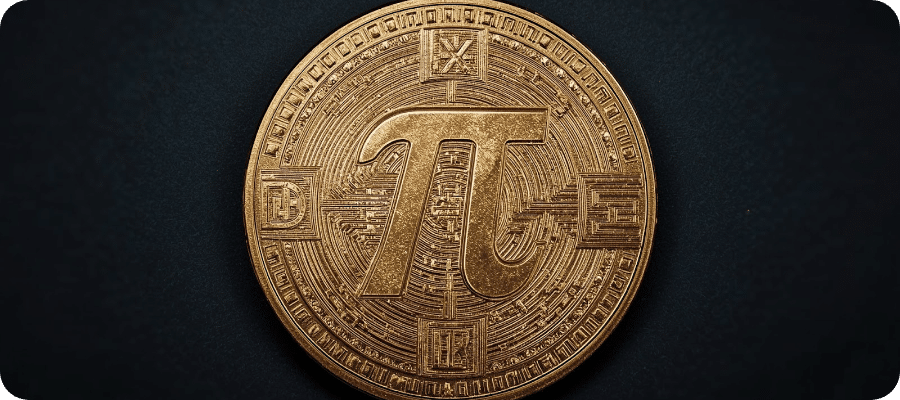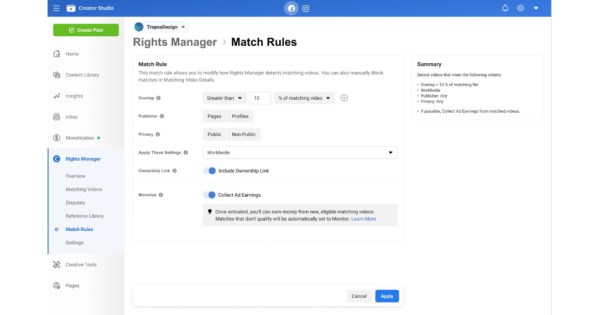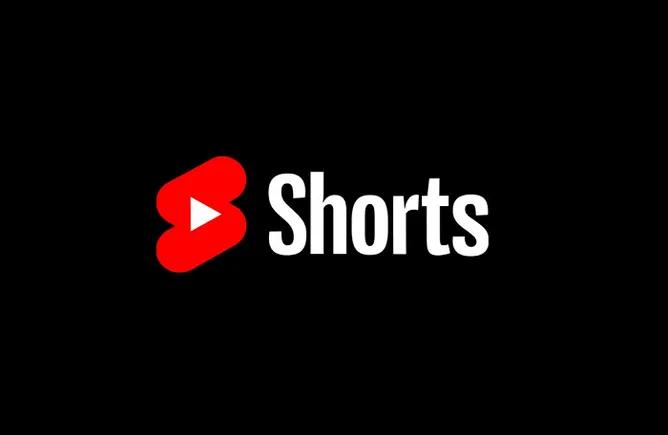Coinbase Wallet is a popular digital wallet that enables users to securely store and manage their digital assets. It is owned and operated by Coinbase, a centralized cryptocurrency exchange based in San Francisco. In this article, we’ll take a closer look at Coinbase Wallet’s features, security, and user experience to help you decide if it’s the right wallet for you. We’ll also discuss some pros and cons of using Coinbase Wallet to help you make an informed decision.
Key Takeaways: Is Coinbase Wallet Safe?
Yes, it is generally considered safe to use. The Coinbase Wallet app gives users full control over their private keys, unlike Coinbase Exchange, where assets are held by the platform.
Coinbase Wallet supports a broad range of cryptocurrencies, including Bitcoin, Ethereum, ERC-20 tokens, and NFTs, making it versatile for various digital assets.
The Coinbase Wallet mobile app has advanced security features such as Secure Enclave, two-factor authentication (2FA), and biometric authentication to safeguard user assets.
While Coinbase Wallet’s mobile app is free, users still have to pay transaction fees, including network and gas fees.
Being a hot wallet, it’s more vulnerable to online threats than cold storage options. Additionally, losing your recovery phrase can result in permanent loss of access to your funds.
What Is Coinbase Wallet?
Coinbase Wallet is a non-custodial mobile and browser extension digital wallet that lets users securely store and manage their cryptocurrencies and NFTs. It serves as a bridge between traditional finance and the decentralized world of cryptocurrencies, delivering an intuitive interface for users to access their digital assets anywhere.
After careful analysis and testing, I’ve compiled a comprehensive Coinbase wallet review to help you understand its features and make the most out of its usability.
What is the difference between Coinbase.com & Coinbase Wallet?
Coinbase.com is one of the most popular cryptocurrency brokerage platforms in the market today. It allows users to buy and sell cryptocurrencies easily and facilitates instant exchanges. The main difference between Coinbase.com and Coinbase Wallet is the way it stores its crypto assets. On Coinbase.com, store crypto assets are stored on their online exchange; however, these crypto assets are out of user control, which makes them vulnerable to external hacking or attacks.
On the other hand, Coinbase Wallet offers a more secure way to store your crypto holdings in a self-custody wallet. This means users can retain full control over their funds as they will be stored in an individual, personally owned wallet instead of on an exchange or broker site like Coinbase. Furthermore, many features make this wallet convenient and user-friendly — think of allowing people to make payments with just one tap using their phone’s contact list, along with supporting over 100 different coins and tokens, including Ethereum (ETH), Litecoin (LTC), Bitcoin Cash (BCH) and more.
Become the smartest crypto enthusiast in the room
Get the top 50 crypto definitions you need to know in the industry for free
Key Features of Coinbase Wallet
Coinbase Wallet is a feature-rich and versatile digital wallet catering to the diverse needs of a modern cryptocurrency user. It combines a user-friendly interface with robust security measures, making it an attractive choice for novice and experienced users.
Self-Custody and Control
Coinbase Wallet is a self-custody crypto wallet, meaning users have total control over their digital assets and private keys. Unlike Coinbase Exchange, where assets are stored on the platform, Coinbase Wallet ensures that users retain ownership of their private keys, which are stored securely on their devices.
Multi-Asset Support
Coinbase Wallet supports thousands of coins and tokens across several blockchains, including Bitcoin, Ethereum, Solana, and ERC-20 tokens. Users can explore decentralized exchanges (DEXs) directly within the wallet, giving them access to an extensive variety of digital assets beyond what’s available on traditional platforms.
Integration with Decentralized Applications (dApps)
The wallet provides users with the ability to connect to dApps and interact with the growing world of decentralized finance (DeFi). From yield farming to staking and swapping tokens, users can take advantage of decentralized services without leaving the app.
NFT Management
For those involved in the NFT market, Coinbase Wallet makes it easy to store, view, and manage NFT collections across multiple blockchains. It supports popular digital collectibles and offers a grid view for convenient access and sorting.
Enhanced Security Features
Security is a top priority for Coinbase Wallet. Their measures include:
Secure Enclave technology for storing private keys
Biometric authentication (face ID or fingerprint recognition) for mobile app access
Seed phrases (or master password) for wallet recovery, which users must securely store to avoid permanent loss of access
Additionally, the wallet supports integration with hardware wallets like Ledger and Trezor for those seeking extra layers of protection.
Messaging and Social Media Crypto Transfers
The latest updates allow users to send crypto via any platform where they can share a link (e.g., WhatsApp, Telegram, or iMessage). This feature simplifies the process, allowing instant, free transfers through a shared link, bypassing traditional banking complexities. If the recipient doesn’t claim the funds within two weeks, they’re returned to the sender.
User-Friendly “Simple Mode”
To help crypto newbies and all new users, Coinbase Wallet introduced a “simple mode.” This feature simplifies the interface, focusing on essential functions like buying, sending, receiving, and storing digital assets. Advanced users can switch back to full functionality whenever they need more complex features.
Global Accessibility
Accessible in over 170 countries, Coinbase Wallet supports local fiat on-ramps in more than 130 countries, allowing users to purchase digital assets easily. This global reach makes it a versatile tool for users looking to manage their assets worldwide.
Coinbase Wallet Fees
The fee structure for Coinbase Wallet is designed to be straightforward and transparent, ensuring users are aware of potential costs associated with their transactions.
Since there are no fees for transfers between Coinbase Wallet and Coinbase Exchange, users benefit from the seamless movement of cryptocurrencies between the two platforms without additional costs.
However, users should keep in mind that when transacting on the blockchain, network fees, commonly known as miner fees, may apply. These fees are not specific to Coinbase but are part of the blockchain’s transaction processing requirements. The amount of these fees can vary — it depends on several factors, including network congestion and the size of the transaction. This means that fees can fluctuate, and the current state of the network matters greatly.
When engaging with decentralized applications (dApps) or making transactions on the Ethereum network, users may incur gas fees. These fees are necessary for the execution of smart contracts on the Ethereum blockchain and can vary depending on the complexity of the transaction and the current network demand.
Additionally, Coinbase Wallet has implemented a fee of 1% on swap transactions. This fee applies when users exchange one type of cryptocurrency or token for another within the wallet. The revenue generated from this fee is reinvested into the wallet’s overall functionality, contributing to the development and maintenance of the platform.
Is Coinbase Wallet Safe to Use?
Yes, Coinbase Wallet is generally considered safe. In fact, many view Coinbase Wallet as one of the safest hot wallets available today. Its robust security measures, like 2FA, biometric authentication technology, and Secure Enclave for private key protection, play a key role in securing user assets. Plus, its recovery phrase feature provides a safety net in case of device loss.
Coinbase Wallet gives users complete control over a wide range of crypto assets. Account holders can easily connect their existing exchange accounts to the wallet. Apart from being convenient, this also provides a crucial layer of protection in case of mismanagement of funds, such as the November 2022 FTX bankruptcy.
In the event of a security breach or unexpected loss of digital assets, Coinbase Wallet has an additional layer of protection against potential security threats — insurance coverage for user funds.
Still, it’s worth remembering that even Coinbase Wallet isn’t completely invulnerable. As a hot wallet, it’s perpetually online and, therefore, more susceptible to online threats compared to cold storage solutions. Moreover, its linkage to Coinbase’s services means any security or service issues at Coinbase could have a ripple effect on users.
Also, user mistakes can lead to loss of funds. Misplacing a recovery phrase, for example, could result in permanent wallet access loss. Conversely, if a malicious party discovers a user’s recovery phrase, they could gain unauthorized access.
Has Coinbase ever been hacked?
While Coinbase Wallet stands out for its cost-efficiency and user control, its history is not without security breaches. In 2021, a security flaw in Coinbase’s account recovery system led to at least 6,000 Coinbase user accounts being compromised. However, the company quickly rectified the vulnerability and reimbursed affected users.
Despite the 2021 incident, Coinbase has shown resilience against numerous infiltration attempts. In 2019, Coinbase’s security detected and thwarted a large-scale attack that could have resulted in billions of dollars in losses. This attack, involving spear phishing, social engineering, and zero-day exploits, earned Coinbase commendation for its deft handling.
Nonetheless, as the 2021 incident underscored, user accounts on the crypto exchange aren’t impervious to hacking. If advanced hackers access personal information, such as your address, passwords, and phone number, they could potentially gain access to your account without even needing to infiltrate Coinbase systems.
What are the safer wallet options?
For those prioritizing safety, I suggest utilizing a hardware crypto wallet like the Ledger Nano S, as cold storage wallets possess greater inherent security compared to hot wallets.
If you’re looking for safer alternatives, consider hardware wallets like Trezor or Ledger for cold storage or software wallets like Electrum for a balance between usability and security. Remember, security in the crypto world is a constant trade-off between safety, convenience, and user control. Always factor in your personal needs, technical capability, and risk tolerance when choosing a wallet. And ensure you use a strong password to enhance the security of your chosen wallet.
Services Offered by Coinbase Wallet
Coinbase Wallet offers a range of services to its users, including support for Ethereum ERC-20 tokens, a link to DeFi projects, and participation in airdrops, ICOs, and NFT collections. The wallet also allows users to browse dApps and shop at crypto-friendly stores, making it a one-stop base for all things crypto.
The Coinbase Wallet app offers a user-friendly interface and the convenience of managing your crypto assets on the go, right from your smartphone.
Users can connect with Coinbase customer support through the wallet app or their website’s support page. In case of any issues, they can also reach out to Coinbase’s support team via email or phone.
Coinbase Wallet Review – Pros and Cons
In this part, we’ll closely examine Coinbase Wallet’s pros and cons so that you can determine if it’s the right wallet for you. Let’s dive in!
What is Coinbase Wallet Best For?
Coinbase Wallet has a wide range of use cases that cater to various user types. To existing Coinbase users, the wallet offers an additional layer of security and control over their assets. They can easily transfer their crypto assets to the wallet and enjoy the benefits of decentralized storage.
People with diversified crypto portfolios can also benefit from using Coinbase Wallet: after all, it supports various types of cryptocurrencies like ERC-20 tokens and has a user-friendly interface that allows for easy trading and exchanges. Users can access and manage their assets from different devices and switch between a hot and a cold wallet for added security.
NFT traders can take advantage of Coinbase Wallet’s support for digital collectibles. The wallet supports non-fungible tokens, making it an excellent choice for those interested in the NFT market.
The advantages of Coinbase Wallet are numerous. It offers users easy access to exchanges and transactions without a third-party service. Additionally, the wallet gives users control over their assets and eliminates the need for custodial accounts. Users can also enjoy regular security audits and extra layers of security, such as biometric authentication and recovery phrases.
The Coinbase Wallet browser extension enhances user experience by allowing seamless access to your wallet directly from your desktop browser.
What Are The Disadvantages of Coinbase Wallet?
In my journey exploring Coinbase Wallet, I noticed it’s not without its imperfections. While offering a host of features, it leaves users yearning for more control over their private keys. The wallet’s non-custodial nature is somewhat overshadowed by its reliance on Coinbase’s services, which puts users at the mercy of potential security lapses or service outages on the platform.
Furthermore, I’ve observed that the transaction fees can pile up, particularly for smaller transactions — a pitfall one should consider. Adding to the downsides, customer support, in my experience, has room for improvement. The limited responsiveness can cause frustration, especially when urgent help is needed.
Lastly, as a product linked to a centralized exchange, Coinbase Wallet may not be suitable for crypto enthusiasts who prioritize decentralized finance and self-custody. The wallet does not support all types of cryptocurrencies and decentralized applications, leading to a limited experience for those looking for more flexibility.
Overall, while Coinbase Wallet offers convenience and a user-friendly interface, these potential drawbacks should be considered before choosing this wallet as a long-term solution.
Alternatives to Coinbase Wallet
For users looking for alternative crypto wallets, there are several options available in the market.
If you want secure cryptocurrency storage, the Trezor One is considered one of the top-rated hardware wallets. It supports over 1,000 cryptocurrencies and works with all the major computer operating systems. Not only is it easy to set up and use, but it also stores your private keys safely offline, so you don’t have to worry about your funds becoming vulnerable online.
Metamask is another great option if you prefer a crypto wallet you can use in your web browser. It’s downloadable as a browser extension for Firefox, Chrome, Edge, and Brave, as well as an Apple or Android app, giving users plenty of options when dealing with their coins.
Some other popular alternatives to Coinbase Wallet include Trust Wallet, Atomic Wallet, Exodus, MyEtherWallet, Trezor, and Ledger Nano S. These wallets offer unique features such as additional layers of security, support for various cryptocurrencies, and compatibility with different operating systems.
FAQ
What does Coinbase Wallet do?
Coinbase Wallet is a digital wallet that allows users to store, manage, and transact various cryptocurrencies.
Is Coinbase a free wallet?
The answer is yes and no. Coinbase Wallet itself is free to download and use, meaning there are no upfront costs or subscription fees to worry about.
However, there are transaction fees associated with using the wallet. These fees typically range from 1% to 4% of the transaction value, depending on various factors such as network fees and the type of cryptocurrency being transferred.
Network fees can be particularly unpredictable and volatile, as they are determined by current traffic and demand on the blockchain networks that support each cryptocurrency. As such, it’s important to keep an eye on these fees before making any transfers to ensure you’re not overpaying unnecessarily.
Is Coinbase and Coinbase Wallet the same?
No, Coinbase and Coinbase Wallet are not the same. Coinbase is a cryptocurrency exchange platform where users can buy, sell, and trade various cryptocurrencies. It operates more like a brokerage, where the platform holds the cryptocurrency on behalf of its users, and they do not have direct access to their private keys.
On the other hand, Coinbase Wallet is a separate application that functions as a digital wallet, allowing users to store and manage their own cryptocurrency holdings.
While both are offered by the same company, their functionalities and purposes are distinct: one is for trading and managing investments on the exchange, and the other is for personal storage and management of cryptocurrency.
How do I get my money out of a Coinbase Wallet?
Withdrawing funds from your Coinbase Wallet is a straightforward process that can be accomplished quickly. First, you should link your Coinbase Wallet to a crypto-friendly bank account. This will allow you to transfer funds directly from your wallet to your bank account.
Once your account is linked, navigate to the Withdrawal page in your Coinbase Wallet and select Bank Transfer as the withdrawal option. From there, select the linked bank account, enter the desired withdrawal amount, and submit the request.
Processing times may vary depending on the specific bank and network used to complete the transfer. However, once the transaction has been confirmed, your funds will be deposited directly into your bank account.
Is Coinbase a good cryptocurrency wallet?
Coinbase is considered a good cryptocurrency wallet by many due to its user-friendly interface, security features, and reliability. It is one of the most popular cryptocurrency wallets available, and it offers support for a wide range of cryptocurrencies. Coinbase also has insurance coverage for stored funds, which provides an added layer of security. However, some users have reported issues with customer support and high transaction fees.
Do I need a Coinbase account to use Coinbase Wallet?
No, you do not need a Coinbase account to use Coinbase Wallet. Coinbase Wallet is a standalone, self-custody crypto wallet that operates independently from Coinbase Exchange. So, users can download and use Coinbase Wallet without creating or linking it to a Coinbase account on the exchange. The wallet is designed for those who want to manage their own private keys and digital assets directly on their devices, providing full control over cryptocurrencies like Bitcoin, Ethereum, and NFTs.
However, if you have a Coinbase account, you can easily transfer funds between your Coinbase Exchange account and Coinbase Wallet for added convenience, but it’s not a requirement to use the wallet’s features.
Is Coinbase Wallet safer than Trust Wallet?
Coinbase Wallet and Trust Wallet are both non-custodial wallets, offering a similar level of security by allowing users full control over their private keys. Both wallets also support cloud backups, enhancing their safety and recovery options.
While their user interfaces are also quite comparable, each wallet has distinct additional features. Trust Wallet supports a variety of cryptocurrencies and enables direct staking within the app, appealing to users interested in earning rewards. On the other hand, Coinbase Wallet offers seamless integration with the Coinbase exchange platform, facilitating easy transactions between the wallet and exchange.
Read our Trust Wallet review here.
Disclaimer: Please note that the contents of this article are not financial or investing advice. The information provided in this article is the author’s opinion only and should not be considered as offering trading or investing recommendations. We do not make any warranties about the completeness, reliability and accuracy of this information. The cryptocurrency market suffers from high volatility and occasional arbitrary movements. Any investor, trader, or regular crypto users should research multiple viewpoints and be familiar with all local regulations before committing to an investment.












